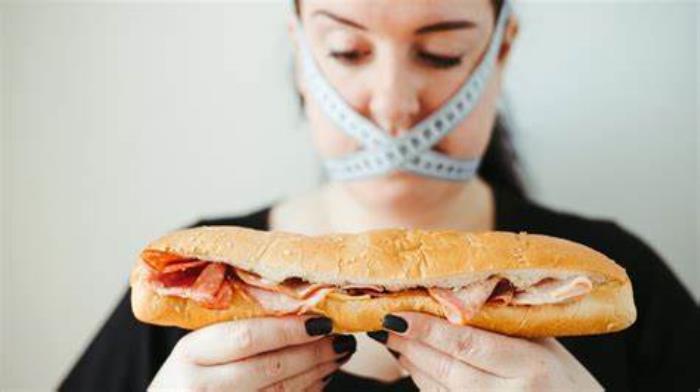Behavioral therapy plays a crucial role in the success of bariatric surgery by addressing the psychological and emotional factors that contribute to obesity. For individuals considering procedures like Biliopancreatic Diversion with Duodenal Switch (BPD/DS), incorporating behavioral therapy can enhance their understanding of eating habits, triggers for weight gain, and the psychological aspects of food. This therapeutic approach aims to equip patients with the tools necessary for long-term lifestyle changes, which are essential for achieving and maintaining weight loss following surgery.
What is Biliopancreatic Diversion with Duodenal Switch (BPD/DS)?
Biliopancreatic Diversion with Duodenal Switch (BPD/DS) is a specialized bariatric procedure that combines the principles of restrictive and malabsorptive weight loss techniques. The surgery involves resizing the stomach into a smaller sleeve while bypassing a significant portion of the small intestine, thereby limiting calorie and nutrient absorption. This complex operation not only aids in substantial weight loss but also has profound effects on metabolic health, often leading to improvements in obesity-related conditions like Type 2 diabetes.
The Importance of Behavioral Therapy in Weight Loss Surgery
Behavioral therapy is integral to the weight loss surgery process, as it helps patients develop healthier attitudes toward food and body image. By engaging in therapy, individuals can identify and address underlying psychological issues related to their eating behaviors, such as stress, anxiety, or depression. This proactive approach allows patients to cultivate a healthier mindset, which is essential for making sustainable lifestyle changes post-surgery.

Moreover, behavioral therapy fosters a supportive environment where patients can discuss their fears, expectations, and goals related to their weight loss journey, ultimately contributing to better surgical outcomes.
How Behavioral Therapy Supports Pre-Surgical Preparation
Before undergoing bariatric surgery, behavioral therapy provides essential support in preparing patients both mentally and emotionally. This phase often involves education about the surgery, potential outcomes, and the importance of adherence to post-operative dietary and lifestyle changes.
Through structured therapy sessions, patients can set realistic goals, develop coping strategies for cravings or stress, and enhance their commitment to lifestyle modifications. This preparation is crucial, as it lays the foundation for a successful transition into the post-surgical phase, where adherence to new behaviors significantly impacts weight loss and overall health.
Identifying Emotional Eating Patterns Before Surgery
Recognizing emotional eating patterns is a critical component of behavioral therapy for individuals preparing for bariatric surgery. Emotional eating often involves using food as a coping mechanism to deal with stress, sadness, or anxiety, which can undermine weight loss efforts. Through therapy, patients learn to identify triggers for emotional eating and develop alternative coping strategies.

Developing Healthy Coping Mechanisms Through Therapy
Therapy can play a crucial role in helping individuals develop healthy coping mechanisms for managing the emotional and psychological challenges that often accompany significant lifestyle changes after bariatric surgery, such as Biliopancreatic Diversion with Duodenal Switch (BPD/DS). Through therapy, patients learn to identify triggers that lead to unhealthy eating habits and develop constructive strategies to cope with stress, cravings, and emotional discomfort. This process is essential for building resilience and ensuring long-term success.
Setting Realistic Goals for Weight Loss and Maintenance
Setting realistic and achievable goals is fundamental to effective weight management post-surgery. A therapist can assist patients in defining specific, measurable, attainable, relevant, and time-bound (SMART) goals that consider their unique circumstances, challenges, and motivations. By focusing on incremental changes rather than drastic transformations, patients are more likely to stay committed and experience a sense of accomplishment along their journey.

The Role of Cognitive Behavioral Therapy (CBT) in Weight Management
Cognitive Behavioral Therapy (CBT) is an evidence-based approach that can be particularly beneficial for individuals undergoing BPD/DS surgery. CBT helps patients identify and modify negative thought patterns and behaviors related to food and body image. By fostering a healthier mindset, patients can enhance their motivation, improve their relationship with food, and develop better habits that support long-term weight loss and maintenance.
Enhancing Motivation and Commitment to Lifestyle Changes
Therapy can significantly enhance motivation and commitment to lifestyle changes by addressing underlying beliefs and attitudes that may hinder progress. Through motivational interviewing and goal-setting strategies, therapists can help patients identify their intrinsic motivations for change, empowering them to remain dedicated to their health goals. This ongoing support can be pivotal in overcoming obstacles and sustaining long-term success.

Behavioral Strategies for Long-Term Success Post-Surgery
To ensure long-term success after BPD/DS surgery, patients can benefit from various behavioral strategies taught in therapy. These may include mindful eating practices, meal planning, regular self-assessments, and the establishment of a consistent exercise routine. Additionally, developing problem-solving skills and learning how to navigate social situations related to food can bolster a patient’s ability to maintain weight loss over time.
Managing Stress and Emotional Triggers After BPD/DS
Post-surgery, patients may encounter stressors that trigger emotional eating or unhealthy behaviors. Therapy provides a safe space to explore these triggers and develop effective coping strategies. Techniques such as mindfulness, relaxation exercises, and stress management tools can help patients address emotional challenges constructively, reducing the likelihood of reverting to old habits.
The Importance of Support Groups in the Behavioral Therapy Process
Support groups can complement individual therapy by providing a sense of community and shared experience. Connecting with others who are on a similar journey fosters encouragement, accountability, and emotional support. Group therapy settings often facilitate discussions about challenges, successes, and coping strategies, enhancing the overall therapeutic experience.
Monitoring Progress: How Behavioral Therapy Tracks Success
Monitoring progress in therapy is essential for assessing the effectiveness of interventions and making necessary adjustments. Therapists often use various methods, such as self-report questionnaires, goal tracking, and regular check-ins, to evaluate a patient’s journey. Celebrating milestones and recognizing achievements, no matter how small, helps reinforce positive behaviors and motivates continued effort.
Addressing Body Image Issues Before and After Surgery
Therapy plays a critical role in addressing body image issues that may arise before and after BPD/DS surgery. Many patients struggle with their self-perception, especially after significant weight loss. Through therapeutic techniques, individuals can work on fostering a positive body image, building self-esteem, and developing a healthier relationship with their bodies. This transformation is vital for enhancing overall well-being and supporting lasting lifestyle changes.
The Impact of Therapy on Patient-Doctor Communication
Therapy can also improve communication between patients and their healthcare providers. By developing better self-advocacy skills and understanding their own needs and concerns, patients can engage more effectively with their medical team. This enhanced communication fosters a collaborative relationship, ensuring that patients receive the support and guidance they need throughout their weight loss journey.
Integrating Family Support in Behavioral Therapy
Family support plays a vital role in the success of behavioral therapy for individuals undergoing Biliopancreatic Diversion with Duodenal Switch (BPD/DS) surgery. Involving family members in the therapeutic process can enhance accountability, provide emotional backing, and facilitate a more supportive home environment. Family therapy sessions or educational workshops can equip loved ones with the tools to understand the patient’s journey, promote healthy habits together, and create an atmosphere that encourages positive lifestyle changes.
Case Studies: Success Stories from BPD/DS Patients
Exploring case studies of successful BPD/DS patients can provide inspiration and motivation for those considering or recovering from the surgery. These success stories often highlight the transformative journey, showcasing how patients overcame challenges, adapted to new lifestyles, and achieved their weight loss and health goals. By sharing their experiences, these individuals can offer practical insights into the role of behavioral therapy and support systems in fostering lasting success.
The Role of Dietitians and Therapists in Collaborative Care
Collaboration between dietitians and therapists is crucial in providing comprehensive care for BPD/DS patients. While dietitians focus on nutritional education and meal planning, therapists address the psychological aspects of eating and lifestyle changes. This interdisciplinary approach ensures that patients receive holistic support tailored to their unique needs, helping them navigate the emotional and physical challenges of their weight loss journey.
Ongoing Therapy: Why Continued Support is Essential
Ongoing therapy is vital for maintaining progress after BPD/DS surgery. As patients transition into new routines and face potential challenges, having continued access to therapeutic support can help them navigate these changes effectively. Regular therapy sessions provide a space for patients to discuss struggles, set new goals, and reinforce healthy coping strategies, ultimately promoting sustained weight loss and overall well-being.
Conclusion: The Key Role of Behavioral Therapy in Achieving BPD/DS Success
Behavioral therapy is an integral component of the BPD/DS journey, addressing the psychological, emotional, and social factors that influence weight management. By developing healthy coping mechanisms, setting realistic goals, and fostering a supportive environment, patients can enhance their chances of long-term success. The combination of surgical intervention and behavioral support creates a powerful framework for achieving sustainable health outcomes.
Managing Digestive Changes After Biliopancreatic Diversion with Duodenal Switch Surgery
Learn effective strategies for managing digestive changes post-surgery that may occur after Biliopancreatic Diversion with Duodenal Switch. This section discusses common digestive issues, dietary adjustments, and tips to ease symptoms while promoting a healthy recovery.
The Connection Between Sleep Apnea and Biliopancreatic Diversion with Duodenal Switch Surgery
Explore the relationship between sleep apnea and BPD/DS surgery. This section examines how obesity and related conditions contribute to sleep apnea and how surgery can help improve sleep quality and overall health outcomes.
Best BPD-DS Surgery in India
The Best BPD-DS Surgery in India offers an effective and comprehensive weight loss solution by combining stomach reduction with intestinal bypass, leading to significant long-term weight loss.
Best BPD-DS Hospitals in India
The Best BPD-DS Hospitals in India are equipped with state-of-the-art technology and expert medical teams, providing thorough pre-operative evaluations and continuous post-operative care for optimal results.
BPD-DS Surgery Cost in India
The BPD-DS Surgery Cost in India offers competitive pricing with transparent, affordable packages while ensuring high-quality treatment at leading hospitals across the country.
Best BPD-DS Surgeons in India
The Best BPD-DS Surgeons in India are experienced specialists in complex weight loss procedures, delivering personalized surgical care tailored to meet each patient's unique health needs and goals.
FAQ
How does behavioral therapy help before and after BPD/DS surgery?
Behavioral therapy helps patients prepare mentally for surgery by addressing emotional challenges, setting realistic expectations, and developing coping strategies. Post-surgery, it supports patients in managing lifestyle changes, emotional triggers, and body image issues.
What types of issues can behavioral therapy address in bariatric patients?
Behavioral therapy can address a range of issues, including emotional eating, body image concerns, motivation and commitment to lifestyle changes, stress management, and coping with social situations related to food.
How can I find a qualified therapist for pre- and post-surgery support?
To find a qualified therapist, consider seeking referrals from your healthcare team, researching local mental health professionals with experience in bariatric care, or searching through professional organizations that specialize in obesity and weight management.
Is behavioral therapy necessary for everyone considering BPD/DS?
While not everyone may require behavioral therapy, it is highly beneficial for many patients. Those with a history of emotional eating, mental health issues, or significant lifestyle changes may find it particularly useful in achieving and maintaining their goals.
What are some common goals set in behavioral therapy for bariatric patients?
Common goals may include developing healthier eating habits, improving body image, enhancing coping strategies for emotional triggers, setting realistic weight loss expectations, and fostering a supportive network of family and friends.